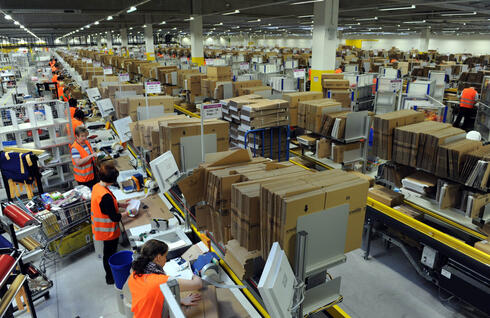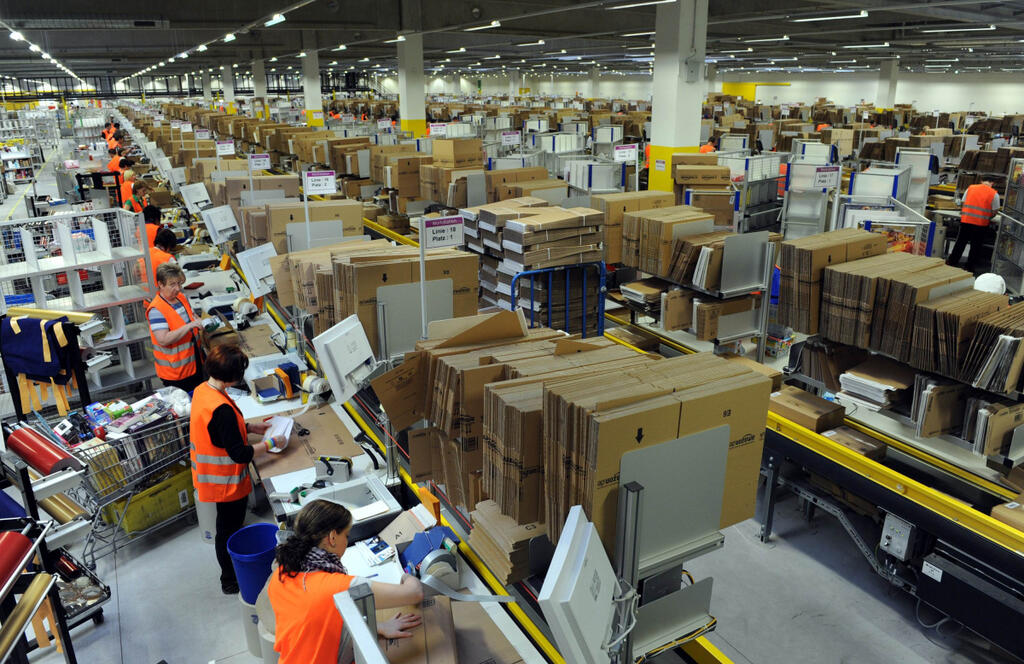
Analysis
Amazon's new bargain section challenges Temu and Shein amidst stock boom
Retail giant competes with Chinese platforms by offering unbranded items under $20
In the days when Amazon joins the $2 trillion club, riding the waves of enthusiasm for artificial intelligence, the retail giant is not forgetting its roots and is competing head-to-head in a race to the bottom with Chinese platforms Temu and Shein. According to a report by CNBC, Amazon is expected to launch a new section on its site where it will market cheap, unbranded items priced below $20. The launch is expected to take place during the fall, with items arriving directly from suppliers in China.
This move comes against the backdrop of a 30% jump in the company's stock since the beginning of the year, which last week brought it to a value of $2.01 trillion. In doing so, Amazon joins the small "$2 trillion" club alongside Microsoft, Apple, Alphabet, and Nvidia. Amazon founder Jeff Bezos saw a jump of $35 billion in his equity with these increases, making him the second richest man in the world with a net worth of $209 billion, according to Forbes. Elon Musk holds the first place with an estimated fortune of $219 billion.
Among the giants, Apple registered the most modest jump since the beginning of the year, amounting to about 15% and is traded at about $3.37 trillion. Nvidia recorded the sharpest jump, 160%, and now trades at a value of $3.01 trillion. Microsoft jumped 23% to a market value of $3.41 trillion, while Alphabet jumped 33% and trades at a value of $2.29 trillion.
Amazon, which was founded in Seattle as an online platform for selling books, has become one of the most prominent influencers in the retail market worldwide. Over the years, it has diversified its sources of income and today is also a dominant player in the information technology products market, providing large companies and startups with cloud services, artificial intelligence, and other data management software. In the cloud field, Amazon is the largest provider in the world, with this division representing the highest operating profit of all Amazon's business segments. In the first quarter of 2024, its cloud services (AWS) revenues accounted for 17% of all revenues and 62% of the operating profit.
While all the technology giants are enjoying growing interest from investors who see AI as a great promise, Amazon is showing increasing vigilance to competitors in its core business: retail. In the last two years, Temu, a subsidiary of Chinese PDD Holdings, has grown stronger, aiming to conquer the American and European markets. Young Temu worked aggressively in the past year and a half to gain market shares with loss prices. The method worked, and in less than a year the application was downloaded by 250 million users worldwide, over half of them in the United States. Today, Temu is the second most popular shopping app in the United States, second only to Amazon, and in Germany, it is the most popular. In 2023, Temu was the app with the largest number of downloads in the world (337 million), followed by Shein in second place (262 million), leaving Amazon (188 million) in the dust.
Shein, the older of the two, began to flank Amazon during the pandemic. At the end of 2022, Bank of America named it "the biggest threat to the fashion players in online retail." According to Earnest Research, it currently accounts for 28% of the fast fashion market in the United States, second only to Amazon (33%). The attraction to these companies stems from a huge offering at floor prices, made possible thanks to their activity with thousands of suppliers throughout China, some of whom are also responsible for shipping to local customers. Shipping small packages to customers directly from China lowers prices by leveraging a loophole in the U.S. import law, according to which packages worth up to $800 are exempt from tax as long as they are sent to private individuals. Today, one out of every three packages entering the United States through this exemption comes from Shein or Temu.
Now, Amazon chooses to behave similarly and rely on Chinese suppliers who will send the cheap products directly to consumers. "We're always looking at new ways to work with our trading partners to delight customers with greater selection, lower prices, and greater convenience," explained Amazon spokeswoman Maria Boschetti.
This move departs from Amazon's dominant approach to its retail operations, which has included strengthening and closing all parts of the production and supply chain. In this framework, Amazon created incentive programs for suppliers to encourage them to use its warehouse and delivery services. The company developed delivery services that compete with UPS, FedEx, and postal companies, allowing it to set a fast and unique delivery standard. At the same time, it charged merchants a fee for these services, instead of the costs going to shipping companies. These decisions created sharp public criticism regarding the environmental impact. Now, with the encouragement of mass shipping of individual packages from China, that criticism is only likely to grow.














